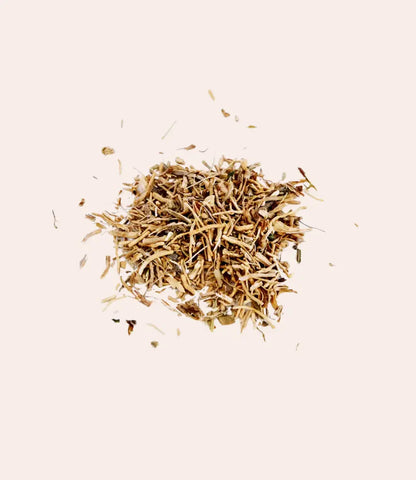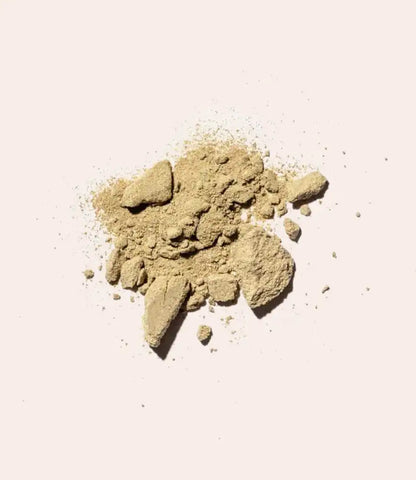
Try These Adaptogens During Perimenopause
Perimenopause, often referred to as the "menopausal transition," is a phase in an individual’s life that can bring about significant physical and emotional changes. It's a natural part of the aging process, typically occurring in the late 40s to early 50s, and signals the gradual cessation of reproductive function. During this time, hormonal fluctuations can lead to a range of challenging symptoms that affect both physical well-being and daily life.
Hot flashes, mood swings, sleep disturbances, and irregular menstrual cycles are just a few of the hallmark experiences of perimenopause. While this transitional phase is inevitable, there are strategies and remedies that can help ease the journey. One such approach gaining increasing attention is the use of adaptogens.
Understanding Perimenopause
Perimenopause is a phase that precedes menopause itself. It marks the transition from regular menstrual cycles and fertility to the cessation of these processes. It's essential to have a clear understanding of perimenopause before exploring how adaptogens can be of help.
- The Perimenopausal Timeline: Perimenopause typically begins in the late 40s or early 50s, although it can start earlier for some. It can last anywhere from a few months to several years before menopause officially occurs.
- Hormonal Changes: Perimenopause is characterized by fluctuating hormone levels, primarily estrogen and progesterone. These hormonal shifts are responsible for many of the symptoms associated with this phase.
- Common Symptoms: Going through perimenopause often experience a variety of symptoms, including. Hot Flashes: Sudden, intense feelings of heat, often accompanied by sweating. Mood Swings: Changes in mood, which can range from irritability to sadness. Sleep Disturbances: Difficulty falling asleep or staying asleep, leading to fatigue. Irregular Menstrual Cycles: Menstrual periods may become irregular, heavier, or lighter.Vaginal Changes: Thinning and dryness of vaginal tissues can lead to discomfort.
- Emotional and Psychological Impact: It's important to recognize that perimenopause can have a profound emotional and psychological impact. Individuals may experience anxiety, depression, and a sense of loss related to the end of their reproductive years.
- Impact on Daily Life: The combination of physical and emotional symptoms can affect daily life, work, relationships, and overall quality of life.
Understanding perimenopause is the first step toward managing its challenges effectively.
What Are Adaptogens?
Before we delve deeper into how adaptogens can benefit perimenopause, let's establish a clear understanding of what adaptogens are and how they work.
Adaptogens are a class of natural substances, primarily herbs and mushrooms, known for their unique ability to help the body adapt to stress. They have been used for centuries in traditional medicine systems, such as Ayurveda and Traditional Chinese Medicine (TCM).
Adaptogens work by modulating the body's stress response system. When we encounter stressors, whether physical, emotional, or environmental, our bodies release stress hormones like cortisol. Prolonged or chronic stress can have detrimental effects on health. Adaptogens help regulate the release of these stress hormones, promoting a more balanced and adaptive response.
To be classified as adaptogens, herbs or substances must possess specific characteristics:
- Non-Specific Action: Adaptogens have a general, non-specific action, meaning they help the body adapt to various stressors without targeting one specific organ or system.
- Normalizing Effect: They promote balance and homeostasis in the body, helping to restore it to its natural state.
- No Harmful Side Effects: Adaptogens are generally considered safe when used as directed and do not produce harmful side effects in the way some medications might.
Adaptogens are particularly relevant during perimenopause because they can help regulate hormone levels that are fluctuating. By reducing stress and supporting hormonal balance, adaptogens may provide relief from some of the most disruptive perimenopausal symptoms.
The Importance of Stress Management
Stress management is a crucial aspect of navigating the perimenopausal journey, and it's where adaptogens shine. But, why effectively managing stress is essential during perimenopause and how adaptogens play a pivotal role in achieving this goal?
The hormonal changes that occur during perimenopause can lead to heightened stress levels. Fluctuations in estrogen and progesterone can affect mood and emotional well-being, making individuals more susceptible to stressors in their daily lives. Prolonged or chronic stress can exacerbate perimenopausal symptoms. It can trigger more severe hot flashes, worsen mood swings, disrupt sleep patterns, and even contribute to weight gain.
Beyond the physical symptoms, perimenopausal individuals often grapple with emotional challenges, including anxiety, irritability, and feelings of overwhelm. Effective stress management can mitigate these emotional strains. Managing stress during perimenopause requires a holistic approach that addresses both the physical and emotional aspects of well-being. This is where adaptogens come into play.
Adaptogens, with their unique ability to modulate the stress response, offer a natural and balanced solution. They help regulate the release of stress hormones like cortisol, preventing them from reaching chronically elevated levels.
Incorporating adaptogens into your routine can provide several benefits, including:
- Reduced Anxiety: Adaptogens like ashwagandha have been shown to reduce anxiety levels.
- Enhanced Resilience: They increase the body's resilience to stressors, allowing you to better cope with daily challenges.
- Improved Sleep: By calming the nervous system, adaptogens can lead to better sleep quality, which is often disrupted during perimenopause.
- Mood Stabilization: Adaptogens can help stabilize mood swings and reduce irritability.
While adaptogens are a valuable tool, they work best in conjunction with other stress-reduction practices, such as mindfulness, meditation, regular exercise, and a balanced diet.
Related to: 7 Adaptogenic Herbs for Stress and Anxiety
Adaptogens and Perimenopause
These natural remedies can address the wide range of challenges that individuals face during this transitional phase.
Schisandra Berries
Schisandra berries, also known as Schisandra chinensis or the Five-Flavor Berry, are indeed considered adaptogens with potential benefits for perimenopausal individuals.
- Hormonal Balance: Schisandra berries are believed to help balance hormonal levels, including estrogen. This can be beneficial during perimenopause when estrogen levels are fluctuating and contribute to symptoms like irregular menstrual cycles and mood swings.
- Liver Support: One of the unique aspects of Schisandra is its support for liver function. The liver plays a crucial role in hormone metabolism, and supporting its health can indirectly aid in hormonal balance.
- Stress Reduction: As an adaptogen, Schisandra can help reduce stress and anxiety levels, which are often elevated during the perimenopausal period. Lowering stress can have a positive impact on mood and overall well-being.
- Antioxidant Properties: Schisandra berries are rich in antioxidants, which can help combat oxidative stress and support overall health. This antioxidant activity may contribute to their ability to reduce the impact of aging and stress-related damage.
Shatavari Root
Shatavari root (Asparagus racemosus) is indeed considered an adaptogen with potential benefits for perimenopausal individuals. It is a traditional Ayurvedic herb that has been used for centuries in India for its various health-promoting properties. Here's what you should know about Shatavari root and its use during perimenopause:
- Hormonal Balance: Shatavari is often praised for its ability to support hormonal balance in individuals. It contains phytoestrogens, plant compounds that can mimic the effects of estrogen in the body. This can be particularly beneficial during perimenopause when estrogen levels are fluctuating, leading to symptoms like irregular menstrual cycles and mood swings.
- Menstrual Irregularities: Shatavari may help regulate menstrual cycles and reduce irregularities, making it potentially useful for individuals experiencing unpredictable periods during perimenopause.
- Hot Flashes: Some individuals find relief from hot flashes, a common perimenopausal symptom, when using Shatavari. Its estrogen-like effects can help mitigate the intensity and frequency of these episodes.
- Mood and Emotional Well-Being: Shatavari is also believed to have a calming and mood-stabilizing effect, which can be valuable for perimenopausal individuals who often experience mood swings, irritability, and anxiety.
- Uterine Health: Shatavari has been traditionally used to support uterine health. It may help alleviate uterine discomfort or dryness, which can occur during perimenopause.
- Adaptogenic Properties: In addition to its hormonal benefits, Shatavari is considered an adaptogen, meaning it can help the body adapt to stress. This can be especially useful during perimenopause when stress levels can exacerbate symptoms.
CBD
While CBD (cannabidiol) is not typically classified as an adaptogen in the traditional sense, they do share some similarities, particularly in their potential effects on stress management and overall well-being.
- Stress Reduction: Both CBD and adaptogens have been associated with stress reduction. They can help the body and mind better cope with various stressors, whether they are physical, emotional, or environmental.
- Homeostasis: Adaptogens are known for promoting balance and homeostasis in the body. While CBD may not have the same broad normalizing effect as adaptogens, it can influence various physiological processes, including the endocannabinoid system, to help maintain a state of balance.
- Anxiety and Mood: Both CBD and some adaptogens have been studied for their potential to reduce anxiety and stabilize mood. They may help alleviate symptoms related to stress and mood disorders.
- Sleep Support: CBD and certain adaptogens have been explored for their potential to improve sleep quality and address sleep disturbances, which can be associated with stress.
- Anti-Inflammatory Effects: Some adaptogens possess anti-inflammatory properties, and CBD is known for its anti-inflammatory effects. Reducing inflammation can contribute to overall well-being and may play a role in managing certain health conditions.
- Antioxidant Activity: Both CBD and certain adaptogens are rich in antioxidants, which can help combat oxidative stress and protect cells from damage caused by free radicals.
Adaptogens can be consumed in various forms, including capsules, teas, tinctures, and powdered supplements. It's essential to follow recommended dosages and consult with a healthcare provider before starting any new supplement regimen, especially during perimenopause.
Depending on individual symptoms and needs, it is possible to combine different adaptogens for a synergistic effect. However, it's advisable to start with one adaptogen at a time to gauge its impact on your well-being.
By incorporating these adaptogens into your daily routine, you can take proactive steps to manage perimenopausal symptoms naturally.
Related to: Moon-a-pause
Sources:
(n.d.). Adaptogens. Cleveland Clinic. https://my.clevelandclinic.org/health/drugs/22361-adaptogens
(n.d.). The No BS Guide to Adaptogens for Hormonal Balance and Stress. Healthline. https://www.healthline.com/health/stress/smart-girls-guide-to-adaptogens
(n.d.). Menopause & Perimenopause Guide to Supplements. Golden Leaf Health Center. https://goldenleafhc.com/menopause-perimenopause-guide-to-supplements/














































